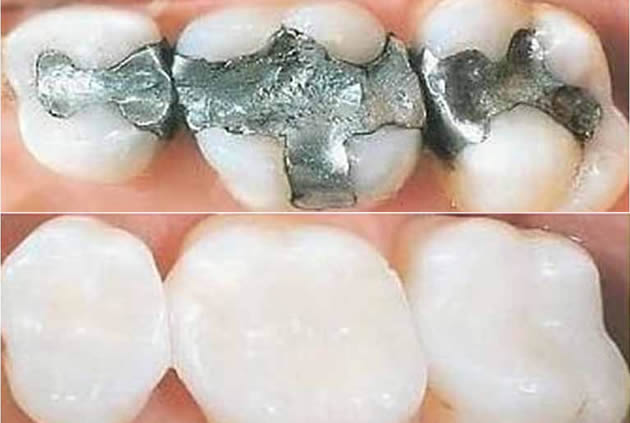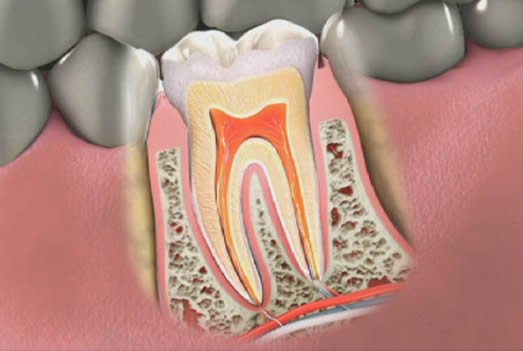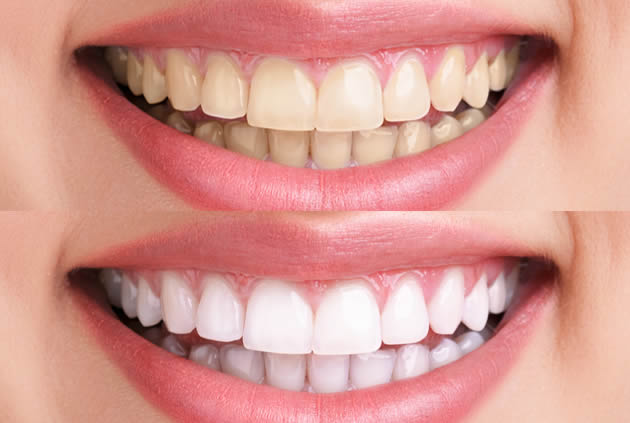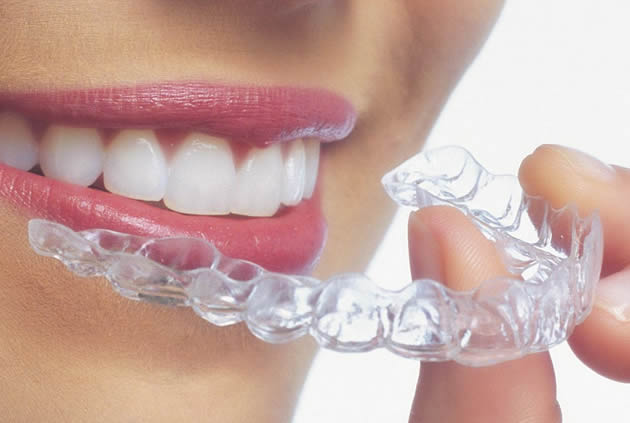
Denture technology has come a long way since the days of George Washington and his wooden teeth. Unfortunately, people still lose teeth for a variety of reasons including periodontal disease, trauma, and decay. Missing teeth make talking and eating difficult, and can ultimately cause sagging facial muscles. However, with today’s advances in technology it is more possible than ever to replace those lost teeth with natural and comfortable dentures.
Complete dentures cover both upper and lower jaws. The options for complete dentures range from immediate dentures to highly customized implant dentures. Immediate dentures are pre-made and available at your dentist’s office. They are not custom fitted and are set into gum sockets immediately upon removal of your teeth. While these offer the convenience of walking immediately out of the dental office with your new teeth in place, once gum tissue heals and swelling reduces they may shift and become loose. This issue requires follow-up visits for your dentist to make adjustments. People with immediate dentures may also have difficulty speaking, or experience a “clicking sound” when talking.
Conventional full dentures can be made 8 to 12 weeks after tooth loss or removal. Once the gums have healed, your dentist takes a series of impressions of your mouth to be sent away to a dental lab to create your dentures. This process may require multiple visits to your dentist to ensure a proper fit and correct bite. While this process takes longer and is more involved than immediate dentures, you will achieve a more secure and personalized fit. Both conventional and immediate dentures require the use of denture adhesives to keep them securely in place.
For an even more custom, natural looking and secure denture option, implant dentures are an excellent alternative. With implant dentures, small implants are placed in the jaw where they heal in place surrounded by the bone. The denture then snaps into the implant with attachments under the denture. These attachments keep the denture stable, providing more comfort and confidence. You do not have to worry your dentures will slip or fall out while you are eating, talking, or laughing. Implant dentures do not require the use of any denture adhesives.
Talk to your dental professional to determine the best use of denture technology to ensure many years of a confident and comfortable smile.
If you need a dentist in Baltimore contact us today

If you have chosen dentures to restore the function and appearance of your mouth, you certainly want them to do their job. Typically, if fitted correctly and you follow the instructions for use and care, dentures are a good solution. However, it’s possible for problems to arise so it’s important to recognize issues and how to handle them.
One key thing about dentures is that they must fit properly. If not, problems like gum irritation, difficulty eating and speaking, mouth infections, and denture movement may occur. Also, if you don’t keep your mouth clean and healthy, problems will likely appear.
If you experience any issues with your mouth after getting dentures, see your dentist right away. It’s possible that over time, your bones and gums can change and alter the fit of your dentures. When this happens, your dentist must determine if modification, adjustment, or replacement is needed. Never try to adjust your dentures yourself.
Here are some things you can do at home to keep your dentures in good condition:
- Handle them carefully. When holding your dentures, place a towel on the counter or stand over a water-filled sink. This will protect them if you drop them.
- Keep dentures out of reach of children and pets.
- Do not sleep with your dentures in your mouth.
- Clean them daily according to your dentist’s instructions. This includes soaking them overnight in a denture cleanser, cleaning them well each morning before wearing them, and cleaning your mouth carefully before inserting the dentures. Use a soft brush or one designed for dentures, plain soap or cleanser recommended by your dentist, and warm water. Never use bleach or household cleansers.
- Store your dentures in warm water or denture cleaning solution. Do not use hot water, which can cause them to lose their shape.
- Do not use toothpicks because they can damage dentures.
Wearing dentures may be tricky at first, and it may take some time to grow accustomed to them. However, if you care for them well and see your dentist for routine checkups, you can avoid most of the problems that denture-wearers sometimes encounter.
We look forward to seeing you in our Baltimore dental office

With an estimated 49 million adults in the United States wearing dentures, there are lots of lessons learned about wearing them. Virtually everyone will say that it took a little adjustment time before they were comfortable and confident with their new teeth. It can help to know what to expect with wearing dentures at first.
Your dentures may feel very strange the first day you get them. They can seem too big for your mouth, and as though your lips are out of place. These strange sensations will disappear with time. You may also notice more saliva than usual in your mouth. This is a natural response of your mouth as it grows accustomed to the appliance.
A liquid diet is recommended by many dentists for the first couple of days after getting dentures. Then you may begin eating soft foods, like cooked vegetables, eggs, and fish. Take small bites and chew slowly. Avoid biting into foods with your front teeth.
Mouth soreness from your dentures should go away after a few days. If it lasts longer than a week, call your dentist to ask if you should be seen. You may experience minor mouth sores for the first couple of weeks that you wear dentures. This is normal as you give your mouth time to adjust. If the sores are severe, call your dentist.
Dentists recommend that you remove your dentures for a minimum of eight hours each day to give your gums a rest. Most patients do this at night while sleeping. Your dentist will provide instructions about how to care for your dentures and where to store them when not wearing them. Be sure to follow the instructions for care to ensure that your dentures last as long as possible.
Our dental office is located in Baltimore













